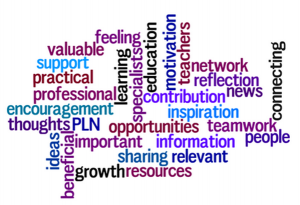PLN Challenge #1: What the heck is a PLN?
June 16, 2011 | 99 Comments
Welcome to the Teacher Challenge!
- Are you a new teacher, feeling isolated and alone?
- Are you an experienced teacher looking for new ideas and inspiration?
- Are you interested in sharing ideas and collaborating with other teachers?
- Are you tired of falling asleep in boring professional learning seminars?
- Have you heard about Personal Learning Networks or PLNs? Feeling lost, confused, wondering where to start?
If you’ve answered YES to any of these questions, then read on!
The “30 Days to a Whole New PLN” challenge is for YOU!
Challenge Overview
Over the next month or so, we’ll be publishing a new post about setting up, enhancing, and participating in your very own personal learning network.
We’ll have 2 or 3 posts each week – and we encourage as much collaboration, participation, and fun as you can possibly have!
Make sure that you have either subscribed to this blog (form on the left), liked Edublogs on Facebook, or follow Edublogs on Twitter to keep up with each new post as they are published.
Want to contribute a guest post to the series, contact us and let us know! You don’t need to be an edublogs user to participate!
This guest post was written by Michael Graffin, a second year relief/substitute teacher and blogger from Western Australia. This is post #1 in the “30 Days to a Whole New PLN” challenge!
So, what is a PLN?
The word “PLN” stands for “Personal Learning Network”, and it has its origins in connectivism theory (Siemens, G. & Downes, S., 2005).
Let’s take this a little further…
The Personal:
Having a PLN is about making connections and building personal relationships with teachers, school administrators, university professors, and experts around the world. No matter where you are in the world, there’s always someone online available to answer questions, share their expertise, and simply chat about what’s happening in their lives and classrooms.
The Learning:
Having a PLN is about sharing ideas and resources, collaboration, and learning. We may share our learning, ideas and expertise in different ways; using different media and tools, but the essence is the same: the PLN is simply the best professional development you will ever participate in – and it’s available 24/7.
The Network:
The defining feature of the PLN is that it is a global learning network, enabling people to tap into and share diverse, global perspectives on teaching strategies, educational issues, and technologies. If takes time and effort to build these connections, but it’s well worth the effort.




